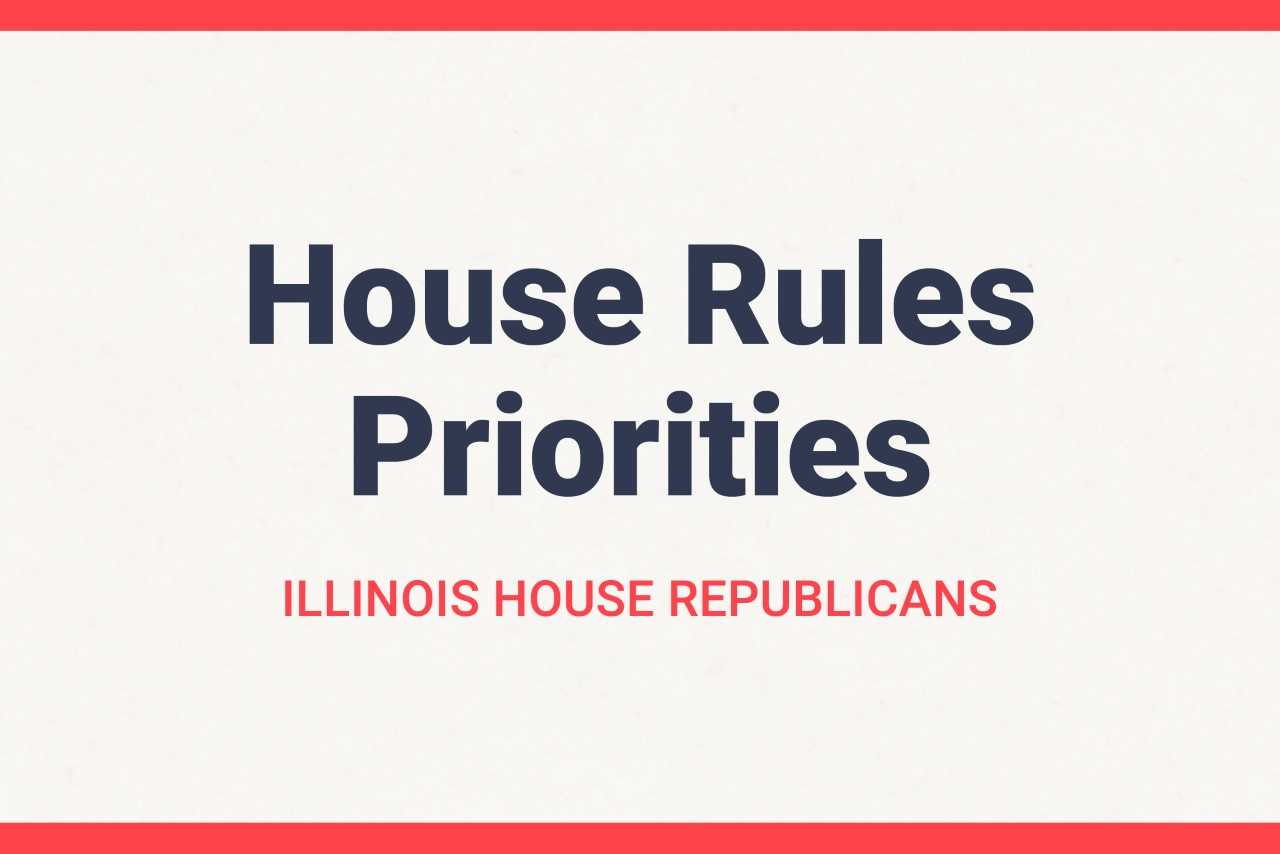State Representative Adam Niemerg (R-Dieterich) today opposed the Illinois House of Representatives Rules (“House Rules”) proposed by new Speaker Chris Welch, that will govern the 102nd General Assembly (G.A.) Session for 2021-22. These rules are available online at ilga.gov under House Resolution 72.
“These rules are put in a resolution that only apply to the two years of the 102nd General Assembly, have 10-year term limits for the Speaker and Minority Leader positions, but these limits aren’t enforceable because the rules are only adopted for two years at a time,” commented Rep. Adam Niemerg. “We need a House Bill to enact true term limits into law that would take passage by the House and Senate and signed by the Governor,”
Rep. Niemerg clarified that “under these new rules, a bill can still be proposed and voted on in only an hour or less without true review and scrutiny as to the impact on families, taxpayers and public safety. A good example is what just happened at the end of the “lame duck” session of the last General Assembly with the law enforcement proposals.”
A number of suggestions were provided to the Democrats and here are the House Republican’s four top priorities that were proposed to the Rules:
1. Rights of Members to have their bills called in Committee
*Each member of the House shall have their bills sent to a substantive committee, posted for a vote in a substantive committee, and called for a vote in a substantive committee. All 118 members of the House of Representatives should have the right to have their bill called for a vote before a committee. This change is not mandating that all bills advance from committee. The change simply grants all 118 members the right to an up or down vote on their bills in committee. Give the members an opportunity to move the legislation that they believe is important to their district or the State.
2. Notice to the Members and Public on what will be up for action in committee and on the Floor
Require a Daily Notice on the House Calendar listing all Legislative Measures that the Speaker will call for consideration that Legislative Day. Require a Daily Notice on the House Calendar listing all Legislative Measures that Committee Chairpersons will call for consideration that Legislative Day. Such daily notice will provide transparency to the general public, and grant all members the ability to fully prepare for debate. These are measures that are used in the United States Congress, and provide those in Congress advanced notice of what will be up for business that week. A more prepared legislator allows for more robust and informative debates on matters before the body.
3. Create Waiting Period for Floor Amendments, Concurrence and Budget Bills
Create a reasonable public review period of at least one calendar day before consideration of floor amendments and concurrence motions and budget bills. The Rules would prohibit consideration until the calendar day after notice is posted for a hearing, or the calendar day after the measure is reported directly to the House from the Rules Committee. Current rules allow consideration one hour after the amendment is reported to the floor by the Rules Committee, or require a one-hour posting notice if referred to committee. Under these Rules, the House can be voting on a $40 billion budget with an hour’s notice. Does that really allow a member to truly know what is in that budget? Does the public know what is in it? We need to give everyone the chance to review all pieces of legislation and know what is being voted on in the House before taking final action. We need to be transparent with our actions.
4. Increase the ability of members to debate legislation on the House Floor
In order to provide for a more thorough debate on legislative matters before the House, changes to the House Rules are needed so that those members who wish to debate a matter are given the chance and members receive as much information as possible to make an informed vote. To ensure that this occurs, it should take 71 votes to rule a fiscal note and all other notes inapplicable, a move to previous question must require a recorded vote (rather than voice vote), and a more streamlined debate process implemented. If we want to be the best legislators we can be, we need to be as informed as possible before we vote. A strong and vigorous debate allows that to occur.
